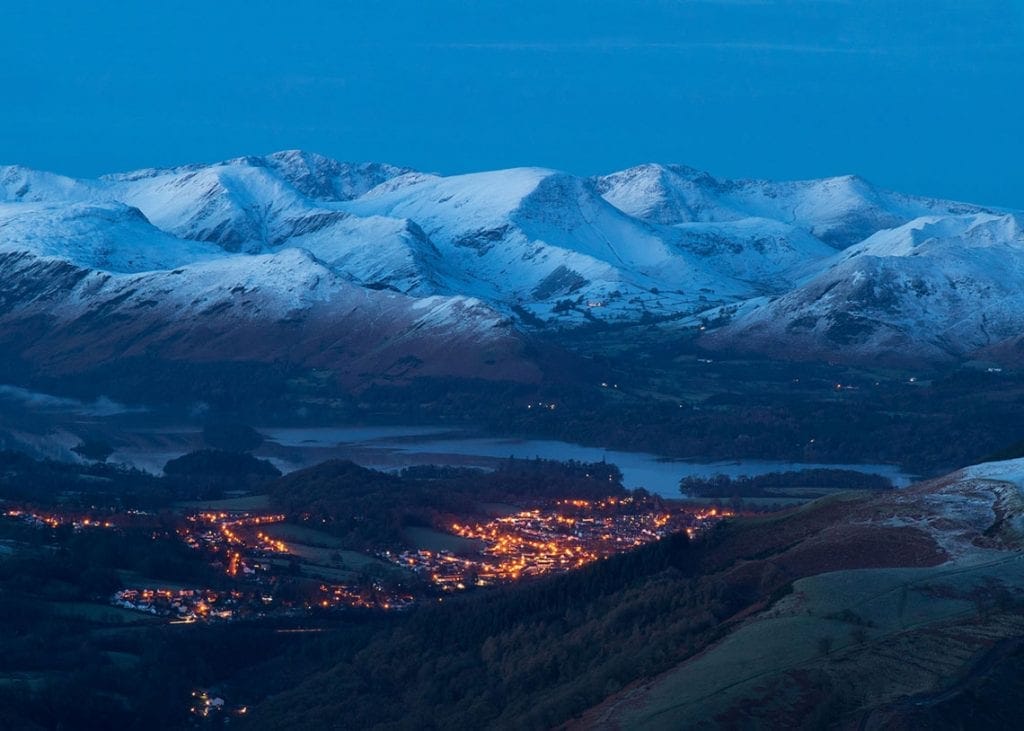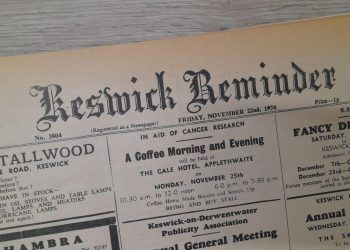The results of a survey into the visibility of stars in the Orion constellation to help build a picture of the nation’s views of the night sky have been published this week.
More than 2,400 people took part in the nationwide survey by the countryside charity Campaign to Protect Rural England (CPRE), and the results show that 61 per cent of people in England counted 10 stars or fewer, meaning they were in an area with severe light pollution, an increase from 57 per cent last year.

The results for Cumbria, the fifth darkest county area of England, show that 39 per cent of people were only able to see 10 or less stars, meaning they were in an area with severe light pollution.
The highest two star numbers counted were 23 and 27 at Asby, near Appleby, and Kirkby-in-Furness, respectively. CPRE’s Night Blight Report in 2016 identified the top 20 darkest district areas in England, in which Eden was ranked third and South Lakeland eighth.
Friends of the Lake District, which represents CPRE in Cumbria, supports national CPRE’s call for local authorities and councils to adopt rigorous policies in local plans to tackle light pollution and protect and enhance the country’s darkest skies.
A positive has been Cumbria County Council’s road lighting programme, replacing more than 41,000 of the older orange sodium lights with LED lights since 2012. The new lamps focus downwards where the light is needed, not wasting light upwards, adding to sky glow light pollution. Environmentally, it has also cut electricity use by 62 per cent and reduced carbon emissions by 80 per cent, and so playing a part in tackling the climate change emergency.
Growing evidence shows that the spread of light pollution not only affects people’s enjoyment of the night sky, but also their health and well-being. Equally, recent research reveals how harmful artificial lighting is to wildlife and the whole food chain. For example, it is estimated that 60 per cent of insects are nocturnal and a third of these are dying because of light pollution. Insects are critical to many species as a food source, but also play a vital role in the pollination of plants and crops.
Jack Ellerby, Dark Skies project officer at Friends of the Lake District, says: “Satellite images show how important the north of England and Cumbria is to the nation as a dark skies resource. Sadly, our darker places are being gradually eroded piecemeal by the fashion of putting up more and more outdoor lighting.
“The good news is that, people recognise the issue of light pollution, whether they are an amateur astronomer or photographer, love wildlife, run a rural tourism business, or want to help the climate by switching unwanted lights off.
“Through our Dark Skies Cumbria project we will work with people, communities, businesses and supporting organisations to tackle both existing light pollution and try to prevent new lighting adding further to the problem. Please do get in contact if you know a particular lighting pollution hot-spot.”
Read more about our Dark Skies Cumbria project.








